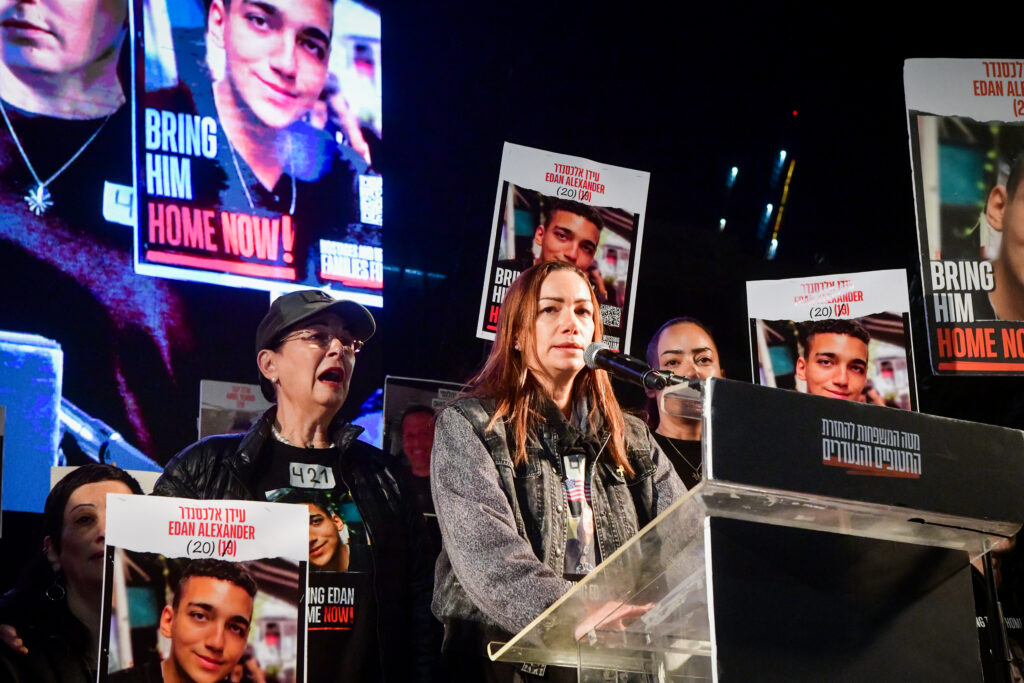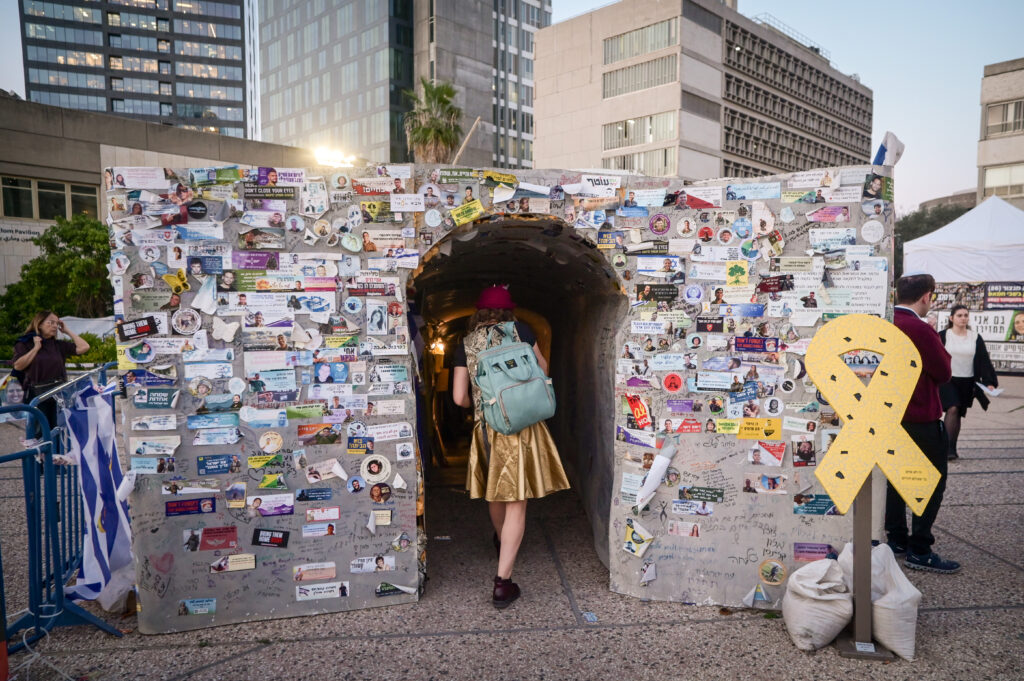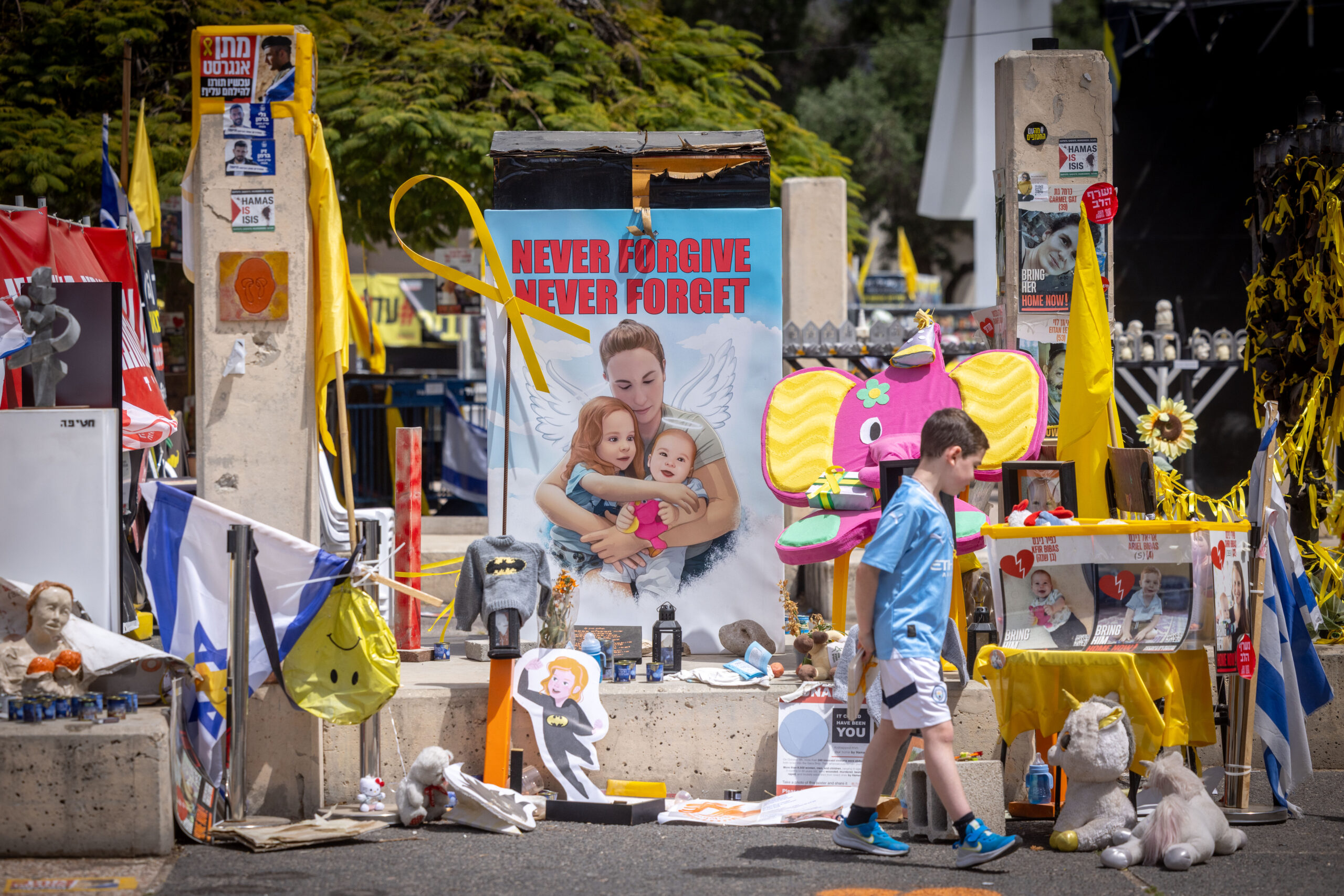During the short drive along the Sea of Galilee from the Mount of Beatitudes to Capernaum, joyful excitement was palpable throughout the bus. As a Passages alumnus on my 7th trip to Israel, I shared in the special joy of serving a cohort of Christian college students as they traced the footsteps of Jesus in the land where He walked. As we approached Capernaum, the voice of my tour guide cracked with emotion, and I brushed away tears— this was her first time leading Passages students in the Galilee since October 7th. She remarked that she had often wondered if this opportunity would ever come again. Few pilgrims have visited the Holy Land since Hamas invaded the south, and fewer still have traveled to Galilee as the region stood on the brink of total war with Hezbollah to the north. However, on this March morning, the Galilee was tranquil, and a fragile ceasefire prevailed in the south.
That ceasefire collapsed hours before my bus was to visit the border with Gaza. On March 18th, a tenuous three-month ceasefire abruptly ended. The pause had, however agonizingly, returned 33 hostages –some alive, some in coffins- to their families. 59 hostages remained in brutal captivity, including Edan Alexander and Evyatar David. Over the course of the war, I met Edan and Evyatar’s siblings and listened to them recount their agonizing struggle to plead for the rescue of their brothers. The pain, love and heartache on their faces is something I will never forget. That same pain is on the faces of Kfar Aza residents showing me the bullet-ridden, burnt-down ruins of streets on their kibbutz and Palestinian Christians I met whose families are still sheltering in the Church of Saint Porphyrius in Gaza City. “How long, O Lord” –I echo the anguish of Psalm 13. When will true shalom descend on the Holy Land?
Our bus sadly wasn’t able to travel to our friends in Kfar Aza that trip. I looked at the upended itinerary and thought of Mother Teresa’s reminder that “God doesn’t ask that we succeed in everything, but that we are faithful.” We pivoted to Hostages Square in Tel Aviv and had Israeli and Palestinian speakers come to our hotel instead of us going to them. While Passages students usually learn second-hand about red alerts and mamads through visits to borderland kibbutzim, my cohort had four opportunities to drop what they were doing and head to the nearest stairwell or bomb shelter. Fortunately, our greatest inconvenience was being awakened at 4 A.M by sirens and later leaving dinners half-eaten only to return after 15 minutes in a hotel stairwell.

Some readers may take this as a cue to fly home or cancel their trip. I would counter that now is the most important time to visit the Holy Land. Christian pilgrims should not wait for peace to descend on Israel and Palestine before they visit. Rather, they should strive to be agents of the peace they so long to see in the Middle East.
How can a pilgrimage mold a Christian into an instrument of peace? As we quiet our hearts to listen to the Holy One, He often speaks to us through the Israelis and Palestinians we meet. In Life Together, Bonhoeffer writes that “We do God’s work for our brothers and sisters when we learn to listen to them.” True listening –like forgiveness– requires dedication. In Dead Man Walking, Sister Helen Prejean writes words about forgiveness that prove true of listening: “each day it must be prayed for, and struggled for, and won.”
Listening to the voices of Israelis and Palestinians opens me to worlds of profound sorrow and defiant joy. The enormity of the region’s pain can overwhelm my heart until it is numb. Again, I think of Sister Helen’s wisdom. Her words about Death Row in America’s Deep South carry the same weight in the Middle East. “In such a sea of pain, what can one person do? Better, I decide, to try to help ten really hurting people–or nine, or one–than to be overwhelmed and withdraw and do nothing–or write an academic paper on The Problem of Evil.”
I can go to the Holy Land merely to climb Masada, walk the Via Dolorosa, and sail on the Sea of Galilee. There is nothing wrong with those things. However, my trip would be a failure if I didn’t make time to truly listen to the locals and befriend them. Pilgrims unite Israel and Palestine in ways that few other people can. We are uniquely positioned to engage, however briefly, with every group that calls the Holy Land their home. Our patronage and support is especially critical to the continued survival of the ancient Christian communities who have shown hospitality to pilgrims since the days when the first disciples gathered in the Upper Room.

The road to peace is long and arduous. I am not sure I will see it in my lifetime. Yet that by no means excuses me from stopping fighting for it. I’m struck by the words of Dr. Samer Attar, a surgeon from Chicago who served in hospitals in Syria, Ukraine, and Gaza. Reflecting on the enormity of the conflict, he told journalists that “I can’t stop bombs, I can’t rescue hostages. I can’t solve this crisis. I can’t repair the world. But I can stand next to you. I can live amongst you. I can share your grief. I can feel your fear. I can serve your community. I can bear witness to your suffering. And then just make some noise about it. And it’s not much, but it beats burying your head in hatred and violence and ignorance.” As a Christian pilgrim, I only pass through the Holy Land for what feels like a moment. But I can always pray for the peace of Jerusalem –a house of prayer for all nations. I can always quiet my heart to listen, pray, and befriend. And when hostage families visit New York City to advocate for the release of their loved ones, like Edan and Evyatar, I do my part to make sure they never stand alone.
The writer is a Passages alumnus, researcher, and library worker in New York City, who has lived in the Galilee and studied at Nyack College, the University of Oxford, and the Pratt Institute.





